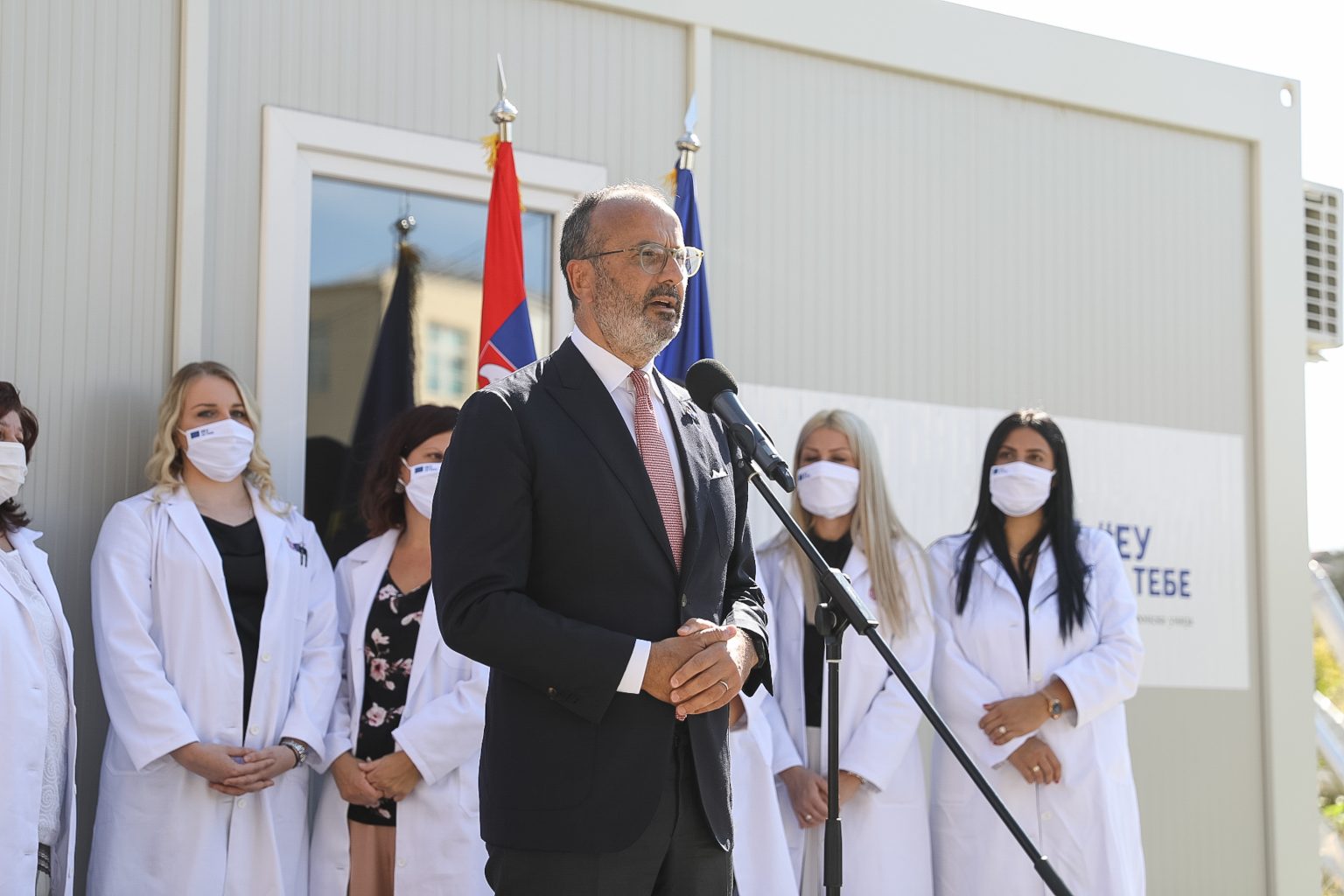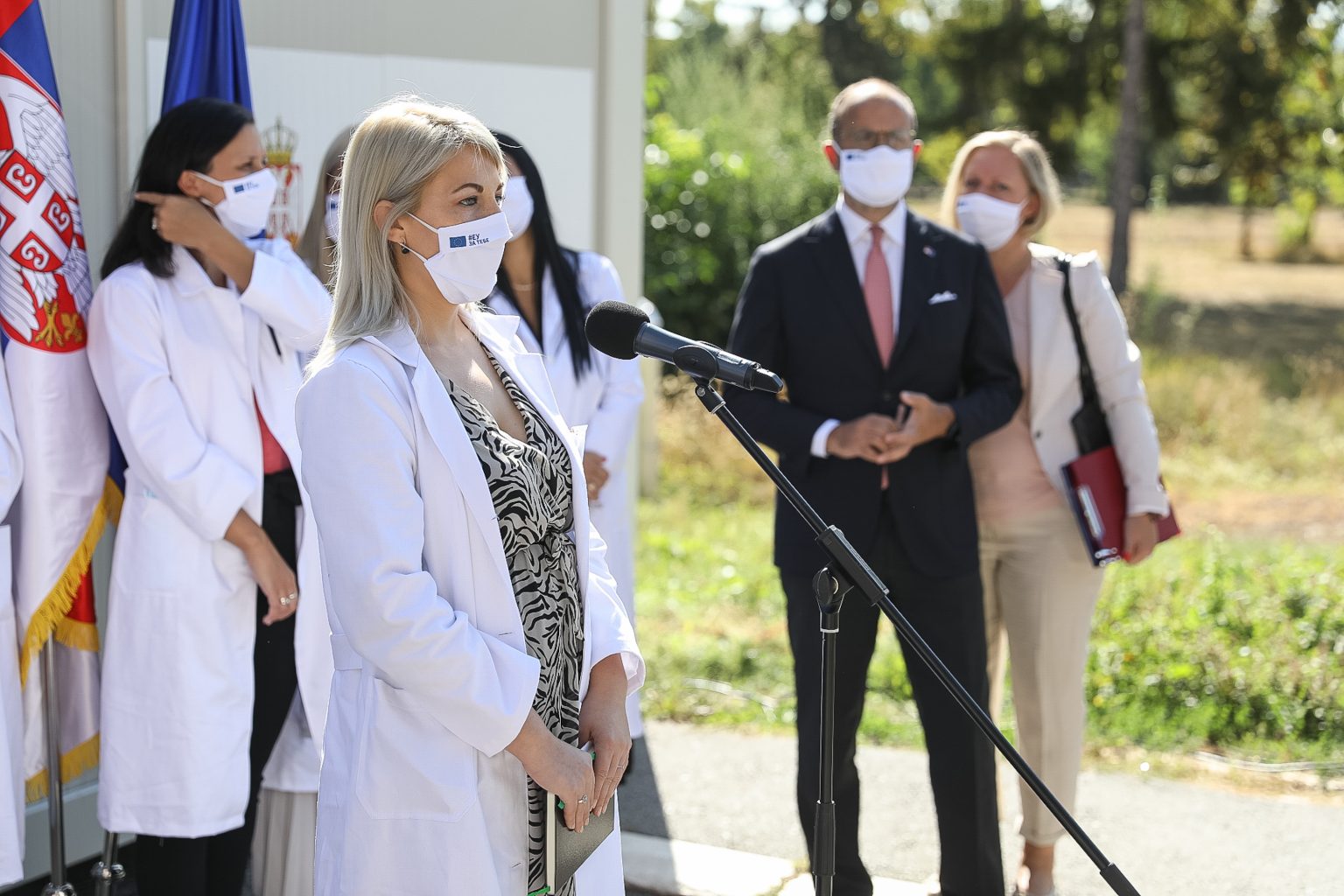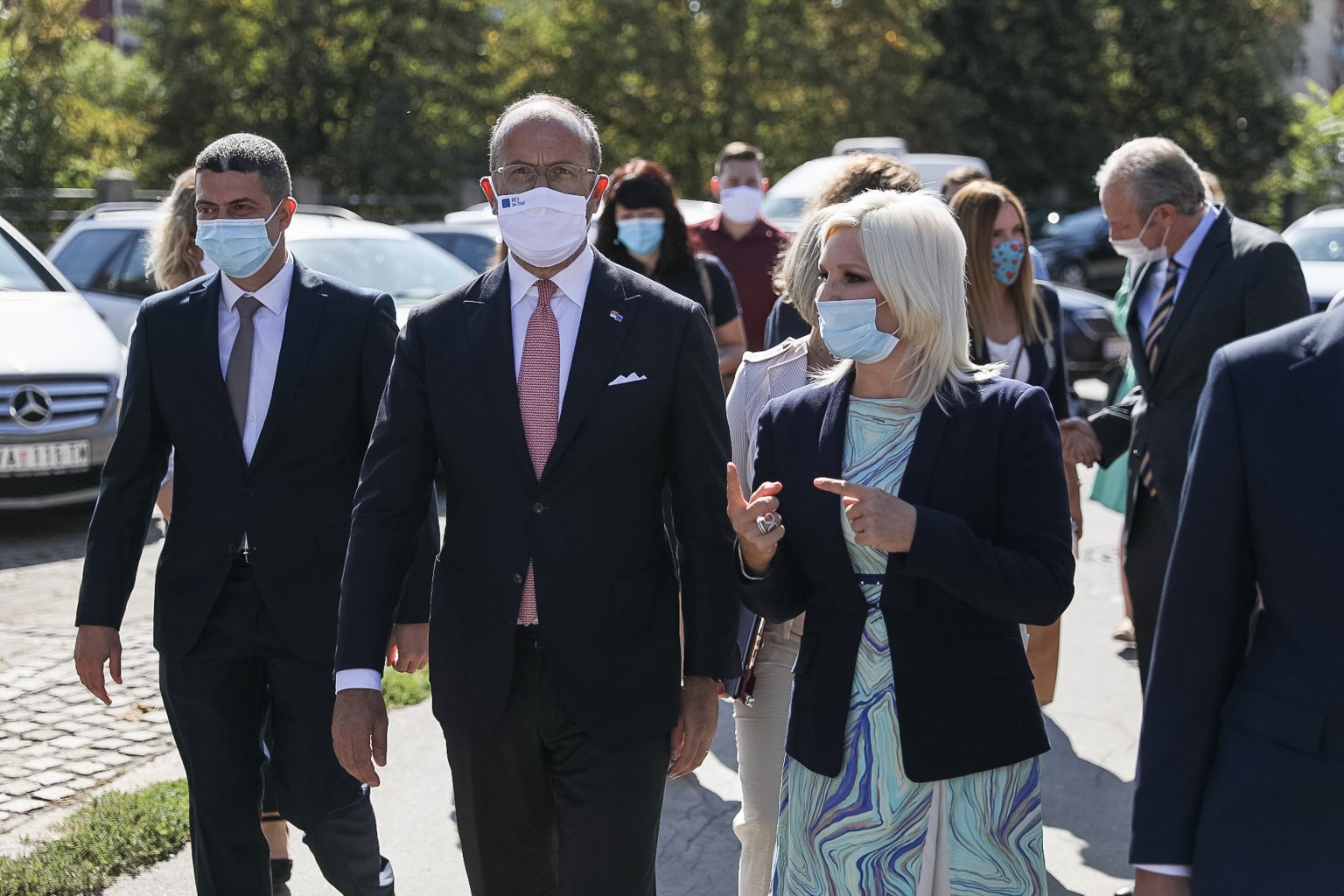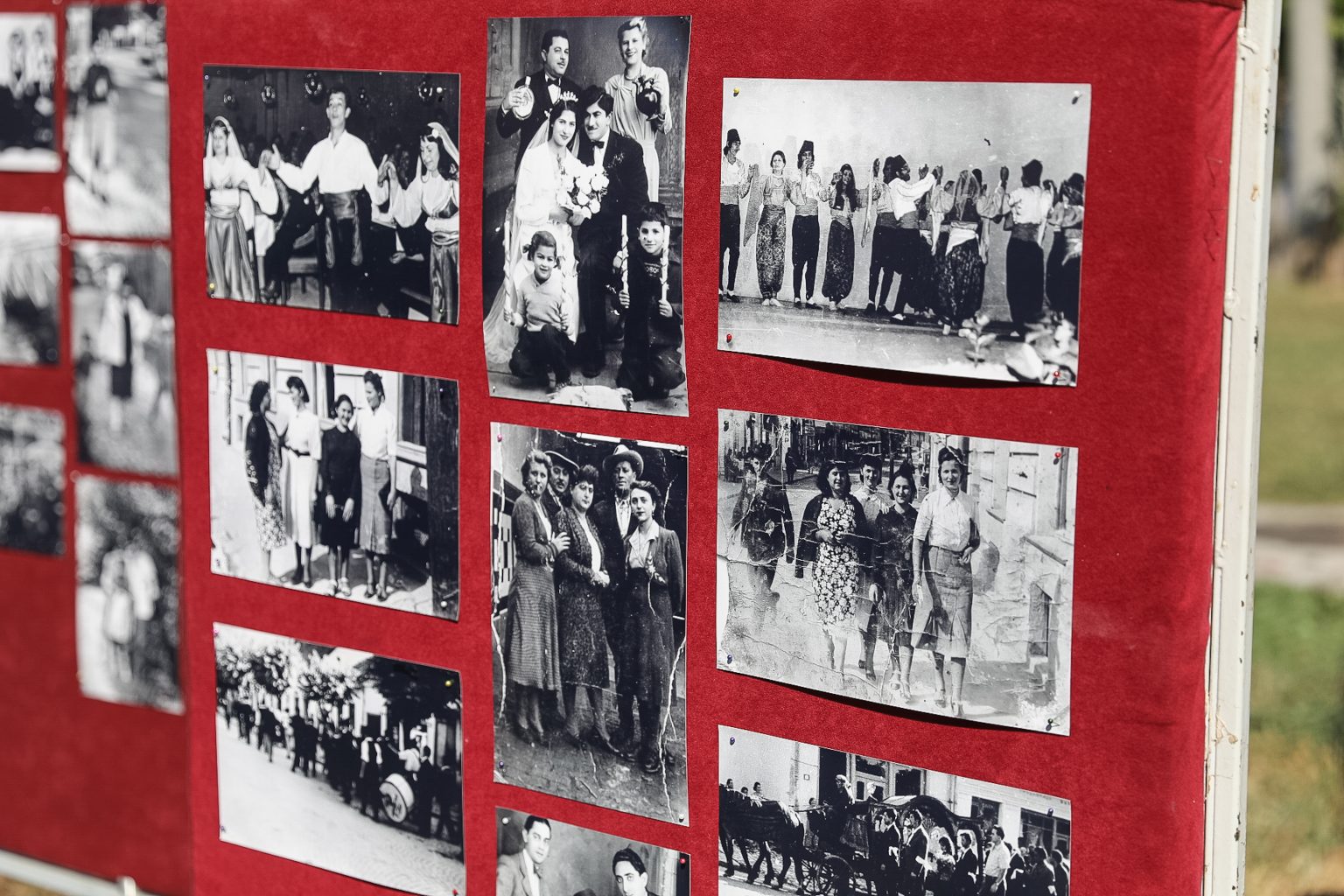Hiring of new people to the Institute for Public Health in Valjevo shortened shifts and significantly facilitated work during the COVID 19 pandemic, says Dr Sladjana Mukić from this institution, which got the job with the help of European Union funds.
The EU financed the employment of medical and non-medical staff from Serbia for a period of six months, and ten of them from Valjevo talked today with the head of the EU Delegation to Serbia, Ambassador Sem Fabrizi, and he thanked them for coming to help us in a difficult situation that hit all of us.

“The Serbian government has asked for help in fighting this unknown virus, and we have sent masks, respirators, including these triage containers. In June, the government also asked for help by financially supporting 200 domestic health workers deployed in institutions. Across the country. Today I had the opportunity to meet ten of these health workers whose employment we have been funding for six months, “said Ambassador Fabrizi, who thanked everyone involved in the process.
“Unfortunately, the virus has not disappeared yet and will undoubtedly be with us for some time, so we must work hard to find a vaccine. I am glad that the EU has contributed to strengthening the health system in Serbia over the past 20 years, and we have provided additional support and solidarity during the COVID-19 pandemic, when we provided respirators, masks and other equipment for doctors and patients in Serbia through the emergency system,” the EU Ambassador concluded.

The director of the “Milan Jovanovic Batut” Institute, Verica Jovanovic, says that the key factor in the fight against the virus is timely diagnostics.
“I thank the EU Delegation to Serbia for recognizing the importance of capacity building when it comes to staff. Valjevo was one of the first cities where COVID-19 appeared. Cooperation between institutions is very important. At the moment we have 315 people being treated in the hospital. “It is very important to diagnose the virus early. Increasing the number of health workers is a significant factor for prevention,” Jovanovic said.
After the city’s Institute for Public Health, Ambassador Fabrizi visited the Roma settlement in Valjevo.
“What will you be when you grow up? A policeman? Well done!” Ambassador Fabrizi asked of one of the children.
Families in this settlement received 500 packages of food and hygiene items in May and June this year, to help the EU’s most vulnerable families during the coronavirus pandemic.

“I am glad to have had the opportunity to visit your homes and talk to some of you. The Roma community is the largest minority in Europe and at the same time the most discriminated. The European Union is trying to improve the lives of members of the Roma community. We need to break down barriers, to provide education for children, jobs for parents, families at home. The EU has donated 30 million euros for these needs – more Roma students, more Roma have documents, “said Ambassador Fabrizi.
The Deputy Prime Minister and the President of the Coordination Body for the Inclusion of Roma and Roma Women, Zorana Mihajlović, also took part in the tour of the Roma settlement.
“Our most important function is to take care of all our citizens, especially vulnerable groups, and Roma men and women certainly belong to that group,” said the Deputy Prime Minister.
She also said that it is up to the children to go to school, and it is up to the adults to provide them with safe conditions for that.
“There is still a lot of work ahead of us. My call to all Roma men and women – do not hold back, come to your mayor, you are no different from others, although many are trying to convince you of that, you are looking for work, for children to go to school,” states Minister Mihajlović.

The director of the Association of Coordinators for Roma Affairs, Dragan Gracanin, notes the important role that the EU plays in the whole process.
“We have started to map health risks in Serbia and address them. We have learned an important lesson – we are in the 21st century and we are talking about essential things such as electricity and water. For everything we need, the European Union always picks up the phone, and we also have support at the national level,” Gracanin said.
Ambassador Fabrizi’s visit to Valjevo was organized in cooperation with the United Nations Office for Project Services (UNOPS).